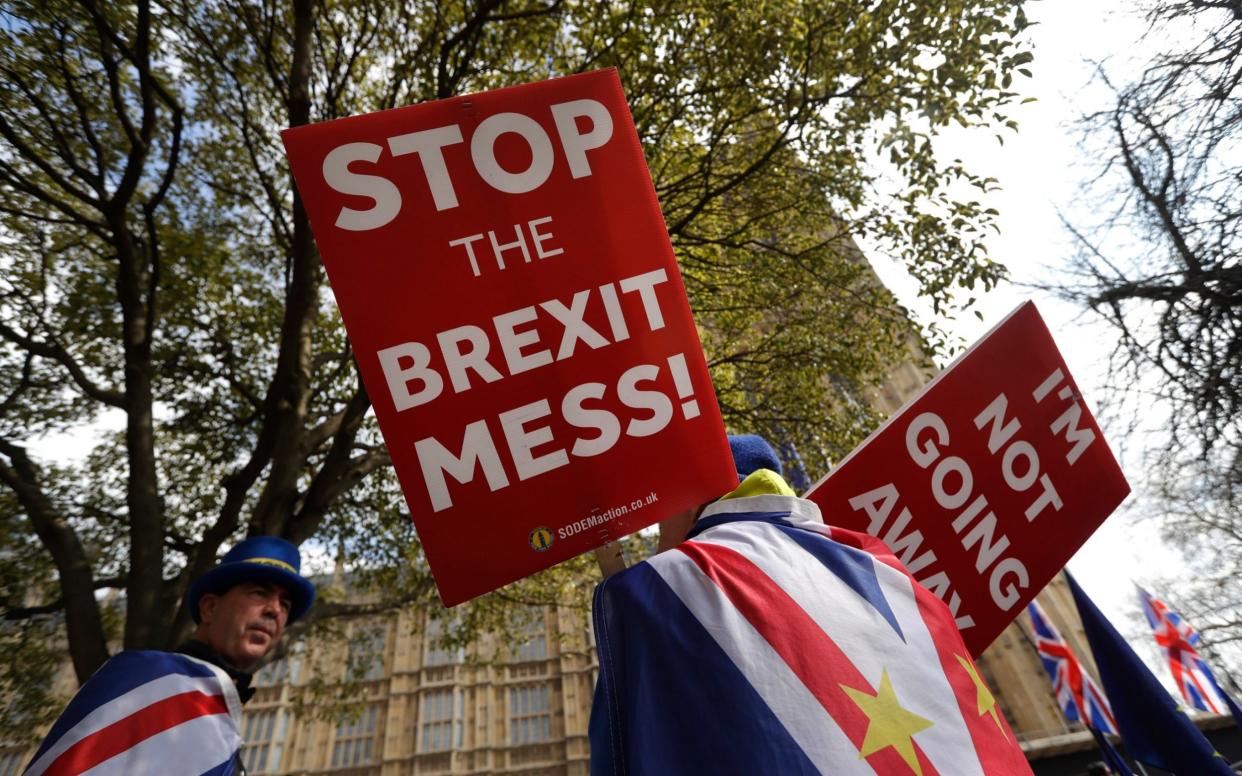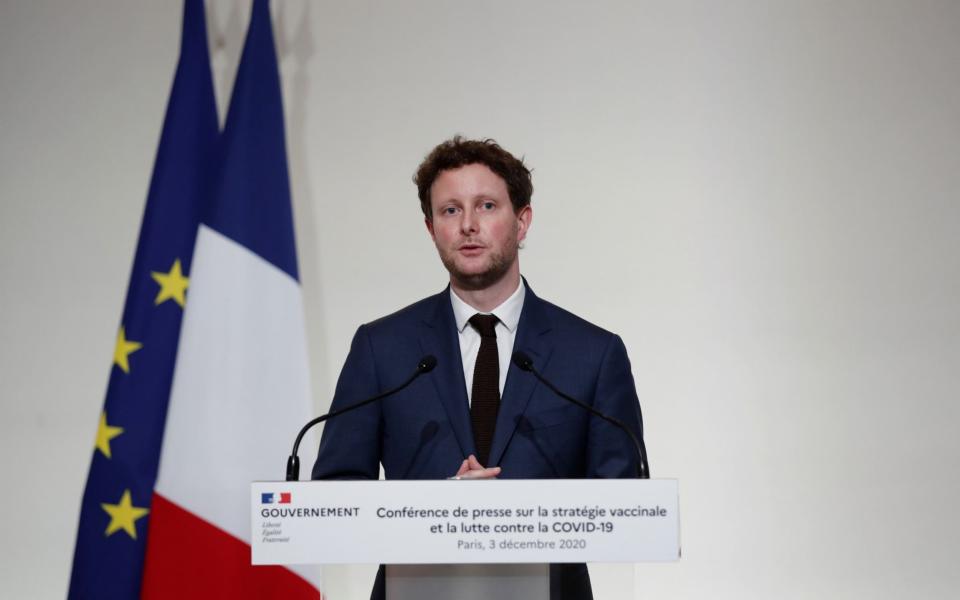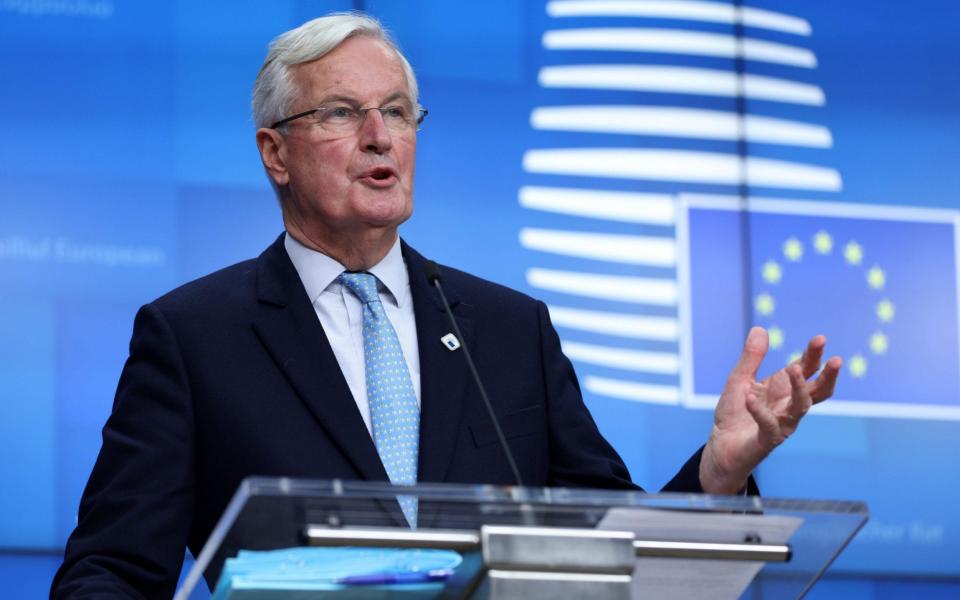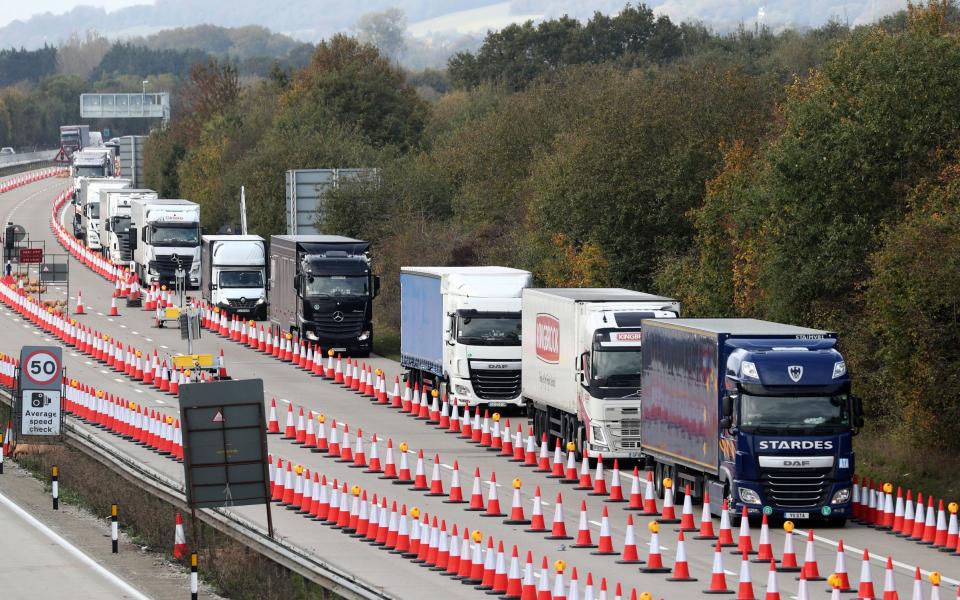What no-deal Brexit means, how it might happen, and how it might affect daily life in the UK

Brexit trade talks reached a stalemate on December 4 after the EU was accused of making a "ridiculous" demand for 10 years of unfettered access to Britain's fishing waters as the price of a deal.
Trade negotiations are hanging in the balance with France threatening to veto the trade deal over fisheries and subsidy laws and other EU governments anxious to tie Britain to guarantees of fair competition.
A senior UK government source said the chances of a deal were "receding" as the EU team were "bringing new elements into the negotiation" at the "eleventh hour".
British sources have set December 7 as an unofficial deadline for a deal to be reached or the UK will leave the transition period without a deal on January 1.
Even if a deal can be reached, it could still be rejected by EU member states. France's European Affairs Minister Clement Beaune warned that France would veto a bad deal, telling Europe 1 Radio: "If a good agreement cannot be reached, we will oppose it. Each country has a veto right."
"I want to tell our fishermen, our producers, the citizens who are listening that we will not accept a deal with bad terms," he added.
European Council President Charles Michel has also stated that the Level Playing Field (LPF) for trade policy is a "key issue" for the EU.

A no-deal outcome could lead to a three-month "meltdown" at UK ports and significant tariffs on car and agriculture exports after it leaves the bloc, according to Yellowhammer, a leaked Whitehall document outlining the possible worst-case scenarios.
The Office for Budget Responsibility (OBR) warned that no-deal would leave the UK worse off to the tune of 1.75 per cent in terms of real GDP next year and that unemployment could reach 8 per cent, a full percentage point higher than if a deal is reached.
Bank of England governor Andrew Bailey has previously warned that a no-deal Brexit would do more long-term economic damage to the UK than the coronavirus pandemic.
The deadline for the end of the transition period is fast approaching, and a deal needs to be struck well before December 31 in order to be ratified in time.
Is a no-deal Brexit really possible?
Yes, although the precise nature of "no-deal" has changed given that the United Kingdom left the European Union on January 31, 2020, under the renegotiated terms of Withdrawal Agreement.
The UK is now in the transition period, which deep-freezes its membership of the Single Market and Customs Union until the end of the year. It cannot now be extended.
UK-EU trade negotiations have proved frustrating and remain deadlocked over fishing rights, level playing field guarantees and the enforcement of the deal.

Failure to agree on replacement trading arrangements will mean the UK leaving without a deal on January 1, 2021, and trading on WTO terms, which would introduce tariffs and quotas.
The Withdrawal Agreement will still be in place, so issues like the Irish border and the so-called "divorce bill" will be settled under its terms, but many other issues remain unresolved. In other words, the original "no-deal" may not be possible, but what is now known as "no-deal" might better be viewed as a "no trade deal" exit.
What would no-deal look like?
The European Union is adamant that there is no such thing as a "managed" no-deal - fearful that making a no deal look too comfortable risks turning it into a self-fulfilling prophecy.
That will not prevent the European Commission from making contingency plans to smooth out significant disruption but only on a temporary, unilateral basis and only if it is in the EU’s interest. For example, the last time no-deal appeared to be a possibility the commission made plans for bare bones transport connectivity, which gave UK aircraft temporary but limited permission to land in EU airports.
The commission has insisted there must be no mini-deals but in practice some bilateral agreements are likely to be made.
The reality of a no-deal is likely to be disruptive, but not world-ending. Or in the earthy phrasing of a senior diplomat from an EU trading power: “No deal won't be an explosion, it will be a wet fart.”
Finance & the City
The EU is heavily reliant on London for some financial services and its capital markets.
Whether or not there is a trade deal, UK financial services will only be granted access to the EU market on the basis of “equivalence”, which is the same system of regulatory recognition US firms have.
Equivalence is a unilateral commission decision and can be withdrawn at as little as 30 days notice in some cases.
Brussels has already moved to grant equivalence to UK-based clearing houses, arguing that the institutions, which guarantee large deals, are vital for financial stability.
Trade & Customs
Without any formal trade deal, the UK would have to rely on WTO rules - in a model described by Brexiteers as an "Australia-style" relationship.
The default commission position is “all relevant” EU legislation will apply to imports and exports, including tariffs, which will mean customs checks.

There could be lines of 7,000 trucks at Dover and two-day waits to get into France immediately after the UK, according to worse case scenarios drawn up by the UK government.
Up to 60 per cent of lorries might not have the correct paperwork on January 1, the government said.
The last time no deal was possible, the commission said the UK would have to apply to a licence scheme that currently only covers 5 per cent of the volume of hauliers traffic.
There is a small risk of a total ban on all meat exports to the EU, if Brussels does not put the UK on its list of countries with high enough food standards.
The commission insists listing will take place as soon as it gets details of the UK’s future food safety regime.
Data
UK Services trade with the EU was worth £89bn last year, all of which is heavily reliant on the ability to transfer data across borders. The UK has already put the EU’s General Data Protection Regulation (GDPR) onto its statute book.
For now the EU is refusing to say it will reciprocate the UK’s stated intention of allowing data to flow freely from the EU, but industry experts note that when the US-EU data Safe Harbour data deal collapsed the EU allowed a period of non-enforcement of its rules.
Giles Derrington of Tech UK said even if a ‘data drawbridge’ did go up, other legal avenues such as ‘standard contract clauses’ are also available. These are not a fail-safe, but already cover some 80 per cent of personal data transfers.
Conclusion
If a point is reached when no deal becomes inevitable, then the interests of both sides would become equally aligned in avoiding a catastrophic outcome.
But the EU will only take unilateral, temporary measures to protect its interests and this should not be confused with mini-deals.
Even with temporary measures in place, the fundamental question of what future relationship Britain and the EU want will remain.
No deal is not sustainable for the long term and eventually the two sides will need to return to the negotiating table.

